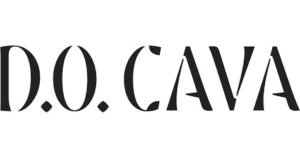 June 8th – Sonoma, Calif.—D.O. Cava is launching a series of educational webinars aimed at media and trade in the UK and USA. The webinar series, entitled 360 Degrees of Cava, will take the format of a panel discussion, led by a host who, in each session, will be joined by three Cava producers in Spain to share their stories and experiences.
June 8th – Sonoma, Calif.—D.O. Cava is launching a series of educational webinars aimed at media and trade in the UK and USA. The webinar series, entitled 360 Degrees of Cava, will take the format of a panel discussion, led by a host who, in each session, will be joined by three Cava producers in Spain to share their stories and experiences.
The online initiative kicks off the trade-focused educational programs that form part of the marketing campaign the Regulatory Board of Cava “Denominación de Origen Cava” (D.O. Cava) launched in the USA and UK earlier this year.
The campaign, also titled ‘360 Degrees of Cava,’ aims to bring visibility to the unique attributes of Cava, highlighting Cava as a nuanced, high-quality sparkling wine, able to be paired with a vast array of global cuisines.
Four webinars will take place between June and the end of the year, exploring a range of topics from the history of winemaking to the new quality-demanding D.O. regulations. The first two sessions will be for audiences in the US and UK and will be co-hosted by an expert on both sides of the Atlantic, while the 3rd and 4th sessions will be market specific.
Webinar 1: Wednesday, June 30 at 9am PT – The Evolution of Winemaking, hosted by wine writer and international judge, David Kermode and multi-media wine expert, Katherine Cole. Register here.
This session will delve into the rich history and winemaking traditions of Cava, with panelists who will discuss how winemaking has developed over the years – a history marked by discovery, growth, and refinement – and reveal an on-the-ground look at what’s going on now.
Webinar 2: Wednesday, July 28 at 9am PT – Cava Production Zones, hosted by David Kermode and Katherine Cole. Register here.
While 95% of Cava production is centered in the Penedés region of Spain, Cava may come from four principal areas throughout the country. In this episode, the panel will explore the four main regions of the D.O., the significance of the Mediterranean influence, and the distinct growing conditions of each place that result in an array of styles and flavor profiles.
Webinar 3: Wednesday, September 22 at 9am PT – Grape Varieties, hosted by Martin R. Reyes MW. Register here.
A deep dive into the nine principal grape varieties of Cava, with a focus on the classic indigenous trio that have traditionally defined Cava winemaking: Macabeo, Xarel·lo and Parellada. The panel will discuss what these different grapes bring to the Cava blends, how they work with each of the varieties, how their selection of grape varieties has changed over the years (including the adoption of international varieties), and the impact those choices have made in the styles of Cava they produce.
Webinar 4: Wednesday, November 17 at 9am PT – Trading Up, Sustainably, hosted by Martin R. Reyes MW. Register here.
The final episode will focus on the different categories and types of Cava, from Cava de Guarda to Cava de Guarda Superior de Paraje Calificado, and the requirements that the regulatory board of Cava have put in place, including aging time in bottle, sugar content, organic practices, and more, which are designed to ensure quality and consistency of product, and encourage sustainable farming practices. The panel will discuss the classification system and how each has a place at the table for sparkling wine consumers everywhere.
About D.O. Cava
With more than 70% of international sales, Cava is the Spanish D.O. which exports the most wine: its 370 associated wineries are present in over 100 countries. The D.O. encompasses more than 38,000 hectares of vineyards and more than 6,800 winegrowers. Cava is a quality sparkling wine that pairs perfectly with every type of food, and is made using the traditional method, with a strict commitment to origin, land, and sustainability.


















